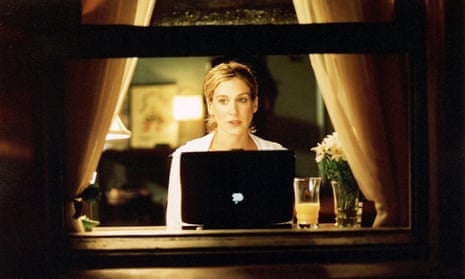For much of the past decade Carla Dejonghe has worked to highlight the ways in which single people are often disadvantaged, whether through higher household expenses or the assumption that they are available to work evenings and weekends.
However, in recent weeks the Belgian councillor has taken matters into her own hands, transforming her municipality into the first in the country – and perhaps even in Europe – to make policymakers consider the impact of their actions on those who live alone.
“It’s a milestone,” said Dejonghe, whose municipality, Woluwe-Saint-Pierre, is on the outskirts of Brussels. “For the first time, a municipality is committing to examining its policies through the lens of a singleton.”
The hope is to correct what Dejonghe – who counts herself among the 36% of single-adult households in Belgium – described as a long-running blind spot when it comes to policymaking. “Nobody’s ever thought about it,” she said. “And in fact, nobody is aware that this group is so huge.”

Across the EU, the number of households made up of only one adult, with or without children, has soared 30% in just over a decade. In 2022, nearly 72 million people lived alone in the EU, in what Eurostat described as the most common type of household across the bloc.
Yet this cohort had consistently been ignored by politicians, said Dejonghe, probably due to the tremendous diversity it encompassed. “If you talk about living alone, everyone thinks of Sex and the City. But it’s not that,” she added, citing the divorcees, widows, clergy and migrant workers of all ages who make up this group.
In recent years a spotlight has been cast on what has been coined the “single penalty”, referring to the extra costs borne by those who do not have anyone with whom to split costs such as rent, energy bills, wifi and TV subscriptions.
In the UK, a financial services firm suggested recently that these extra costs could amount to more than £10,000 a year and were exacerbated by specific tax breaks for people who were married or in civil partnerships.
Late last month, the council in Woluwe-Saint-Pierre voted unanimously to adopt the charter drafted by Dejonghe, in what she said was a first for Belgium and Europe.
The text of the charter stresses the aim of ensuring that single-income households are treated on an equal footing with others, adding: “It is our interest as policymakers to no longer think from the perspective of the traditional family as the norm, but to strive for measures that are neutral to living arrangements.”
It includes measures that range from encouraging new housing projects to feature communal spaces for more social interaction, to tweaking municipal invitations to specify that guests can bring a “plus one” instead of only a partner.
The municipality will also aim to make activities it organises accessible. “If you’re organising things such as tango lessons, you have to be two people,” said Dejonghe, adding that classes would also have to be affordable for those living on one income.
The charter also commits to championing single-friendly practices within the local hospitality industry, such as communal tables and a wider selection of quality wines by the glass. Workplaces will also be encouraged to reconsider the common practice of relying on people who live alone any time overtime is required.
“These are just simple things,” said Dejonghe. “They don’t cost much money but they’re very logical.”
So far the response to the charter had been overwhelmingly positive, she said, with several of her counterparts at other municipalities expressing interest in adopting similar measures.
Dejonghe, who is also a member of Belgium’s parliament, said she had yet to receive any negative reactions, chalking it up to the care she had taken to emphasise that the charter was in no way aimed at diminishing the importance of traditional families.
“It’s about equality,” she said. “Everyone has to be aware of two things: if it’s good for a person living alone, it will be good for everybody. And second, whether you want to or not, at some point in your life you will be all alone.”
She described the charter as a first step towards tackling this reality. “Our society has evolved but our policies haven’t kept up,” she said. “These are small steps but we have to start somewhere.”
